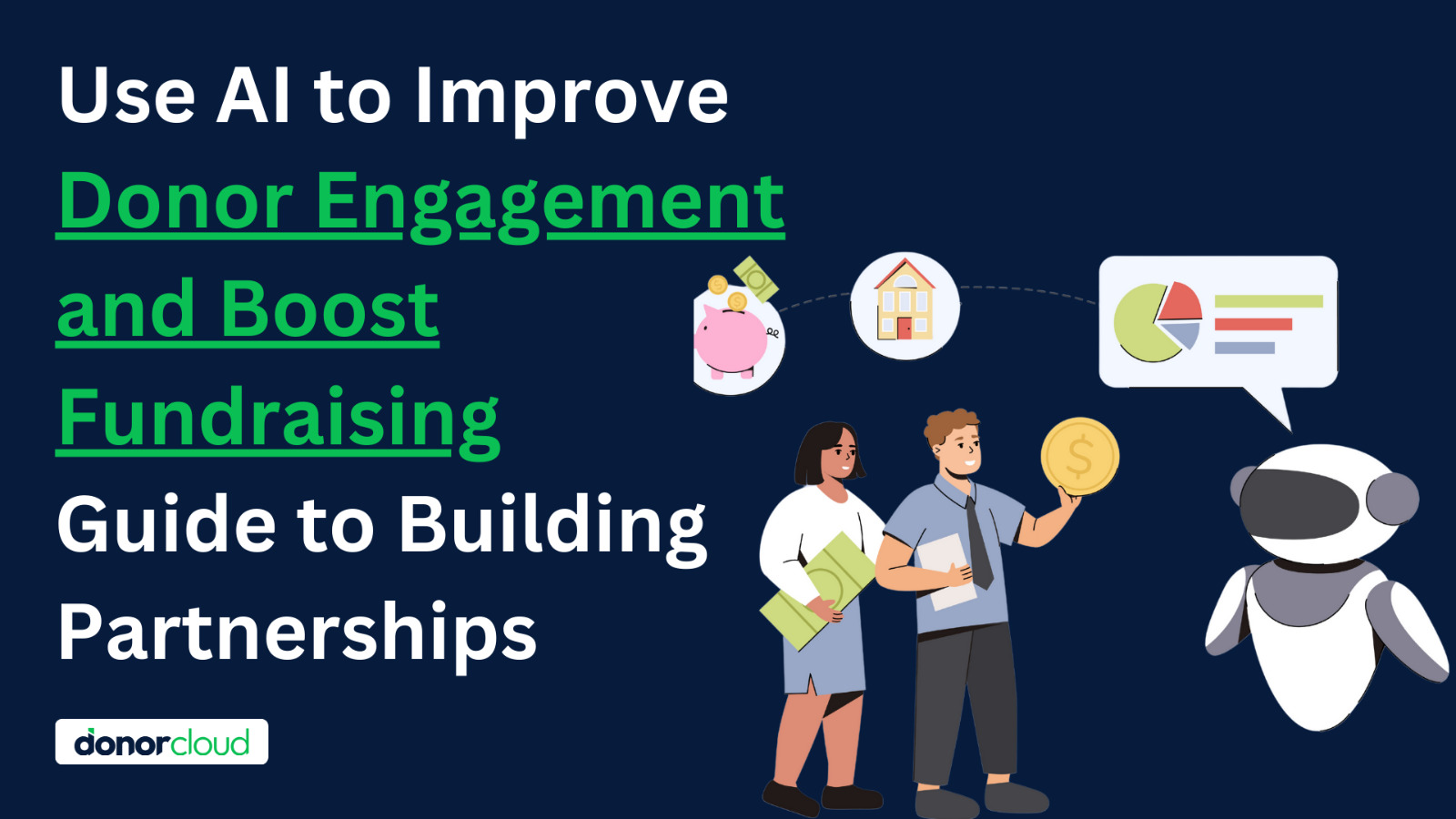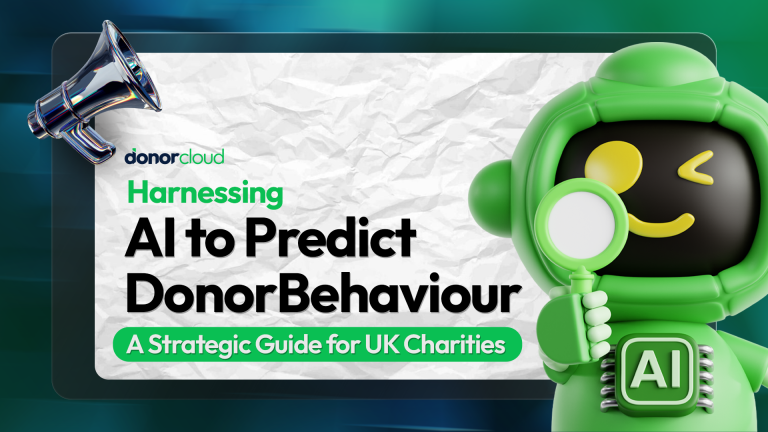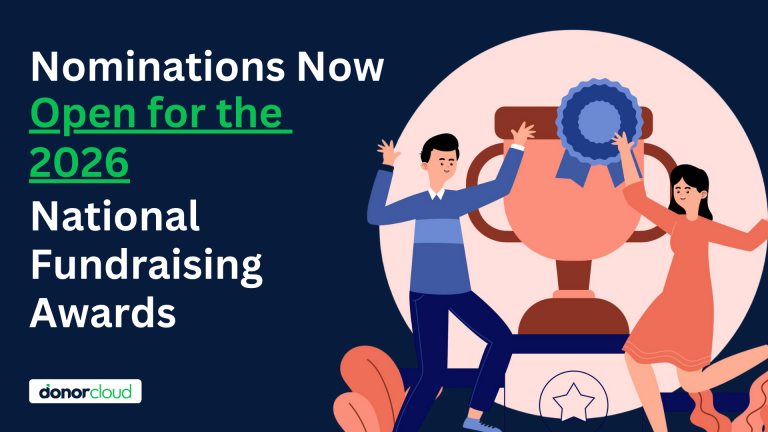Artificial Intelligence (AI) is transforming how UK charities connect with their supporters. From personalised communication to predictive analytics, AI provides powerful tools that help charities build stronger donor relationships and increase fundraising efficiency. This blog explores practical ways charities can adopt AI, supported by real-life case studies and actionable tips.
Table of Contents
ToggleThe Role of AI in the Nonprofit Sector
AI enables charities to process large volumes of data quickly, offering insights into donor preferences and engagement patterns. With this knowledge, charities can improve the way they segment audiences and communicate in a more meaningful, data-driven way.
By automating repetitive tasks and tailoring outreach efforts, nonprofits can focus more on building authentic relationships and less on administration.
Improving Donor Segmentation and Personalisation
Effective segmentation is the foundation of successful donor engagement. AI tools can segment donors based on factors like giving history, communication preferences, and behavioural patterns. This level of personalisation leads to more relevant messages and better campaign outcomes.
Example:
A donor with a history of supporting health-related causes can receive campaign updates specifically related to healthcare initiatives, along with tailored donation appeals.
AI also enables charities to send timely messages—such as donation anniversaries or personalised thank-you notes—based on behavioural triggers.
Automating Communications and Using Chatbots
AI-powered chatbots are increasingly being used by UK charities to provide instant responses to donor queries, improving the user experience. These tools can operate 24/7, guiding users through the donation process or answering FAQs during busy campaigns.
AI also automates common communications, including event reminders, campaign updates, and follow-ups. When integrated with a charity’s CRM system, this streamlining ensures consistent and professional engagement at every stage.
Data Insights and Predictive Analytics
Predictive analytics helps nonprofits make data-backed decisions by analysing trends and forecasting future donor actions. AI tools can alert charities when a donor may lapse or when a campaign is likely to underperform—enabling proactive intervention.
Example:
If data shows a drop in engagement from a particular segment, the charity can launch a re-engagement campaign tailored specifically to their interests and past behaviour.
Charities can also analyse sentiment across social media platforms to assess how well a campaign is being received, refining their approach in real time.
Optimising Fundraising Campaigns
AI allows organisations to test different variations of fundraising campaigns—subject lines, images, call-to-action buttons, and more—to discover what resonates best with each donor segment.
This data-driven approach reduces acquisition costs and maximises the return on fundraising efforts. It also ensures transparency and accountability—core values that matter deeply to donors.
Case Studies: How UK Charities Are Using AI
1. National Deaf Children’s Society (NDCS)
NDCS launched a chatbot to provide instant, accurate information for parents and carers of deaf children. The chatbot improved user experience on their website, increased engagement, and reduced pressure on their support staff.
2. Charity: Water
Although a U.S.-based nonprofit, Charity: Water’s use of AI serves as a strong benchmark. They used machine learning to analyse donor behaviour and improve segmentation. This helped deliver more tailored communications and increased donor retention.
Note: While Charity: Water is not UK-based, the case demonstrates globally relevant AI practices that can be adapted by UK charities.
Ethical Use of AI and Data Privacy
UK charities must prioritise data protection and ethical use of AI. Clear donor consent, transparency about how data is used, and compliance with regulations like GDPR are essential.
AI should enhance, not replace, human relationships. Training staff to work alongside AI ensures that technology supports genuine, personal connections with donors.
Conclusion: Embracing AI for Sustainable Growth
AI offers a transformative opportunity for UK charities. From smarter segmentation to personalised campaigns and real-time analytics, these tools can significantly improve donor engagement and fundraising outcomes.
Key Takeaways:
- Start small with tools like automated email sequences or chatbot integration.
- Use AI insights to tailor communication and optimise campaigns.
- Ensure all AI implementation is GDPR-compliant and ethically sound.
By using AI effectively, charities can build stronger donor relationships, improve campaign performance, and achieve lasting impact.





